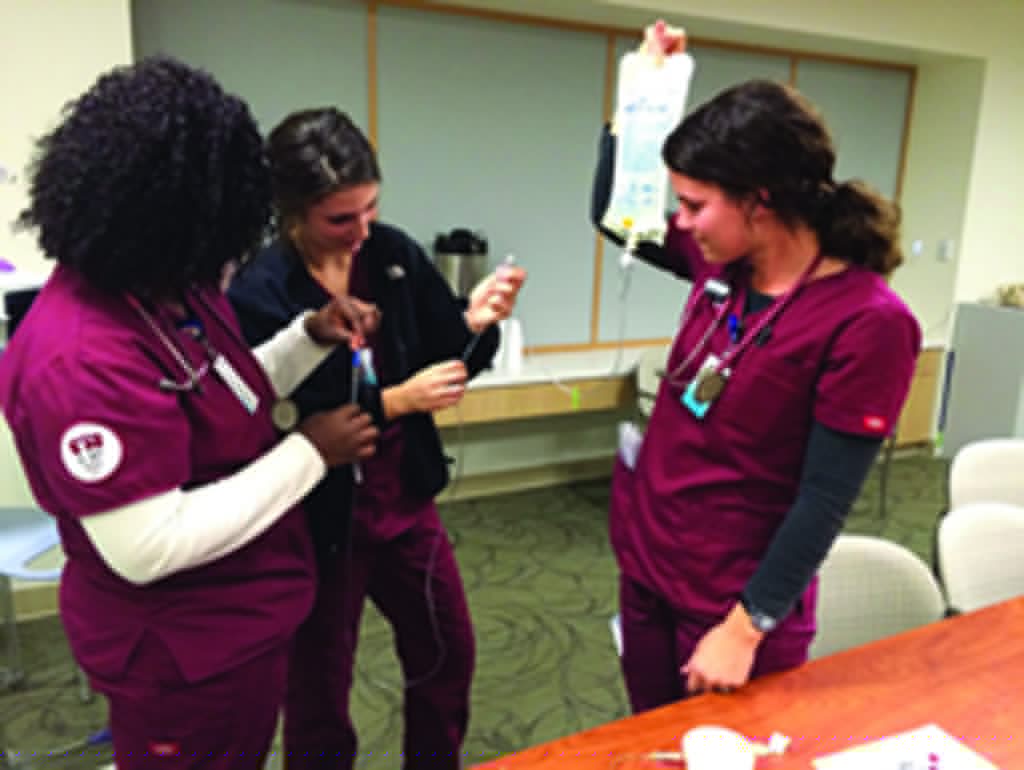Between Oct. 2014 and Sept. 2015, all eighteen 2015 graduates of Eastern University’s Bachelor of Science in Nursing (BSN) program passed their National Council Licensure Examination (NCLEX) on their first attempt.
Passing this exam is the only way for a nursing student to become a Registered Nurse (RN) and begin practicing. It is designed to ensure that potential nurses are completely safe to begin working with patients. Many students who have graduated with a degree in nursing do not pass. Even fewer of these students pass on the first try. According to the National Council of State Boards of Nursing, which administers the test, the 2015 pass rate of Eastern’s program is 10.67% higher than all other Pennsylvania BSN programs. Even more impressively, only 85.49% of US students pass on the first attempt – 14.51% lower than Eastern’s 100% pass rate this year
There are two main factors that clearly contributed to our nursing students’ success. Dr. Dianne DeLong, chair of the EU nursing department, notes, “To have such a high pass rate is evidence of the quality of our students’ preparation and the EU nursing program’s commitment to providing outstanding faculty leadership in the classroom, lab and clinical setting, as well as the academic rigor they require for student success.” The first factor should not be ignored: while this feat has been achieved by Eastern University as a whole, each of these students deserves credit for their commitment in preparation for both this exam and their future careers.
We spoke to Katherine Vance, junior nursing student, about her thoughts on this success, and she credits her success with the strength of the department. “The support and care that the nursing department provides is incredible. The faculty and staff go above and beyond to help us succeed. While the experience is rigorous and challenging, the rigor prepares us to use our skill set well; whether it’s in the care setting or on an exam.” Eastern’s BSN program concentrates on nursing that is both professional and holistic, and which seeks to keep Christ at the center of the work. Nursing students are taught a general nursing curriculum, and are able to study specialized concentrations that prove many opportunities for clinical experience at a variety of facilities. The program does not separate proficiency from ethics and core Christian values, and this unique outlook certainly forms a very challenging program that produces quality nurses prepared for the challenges of their careers.

